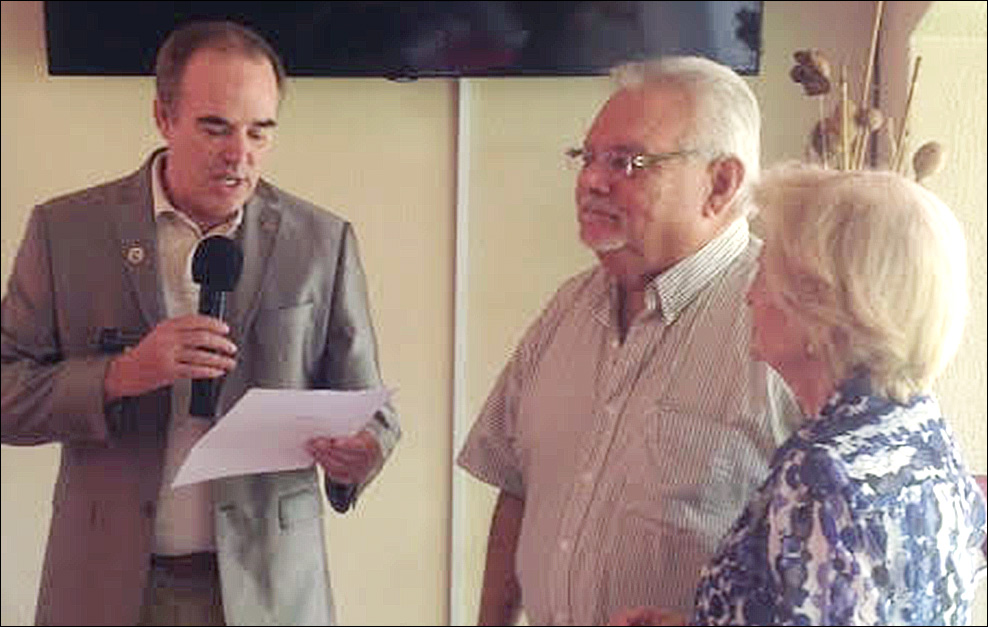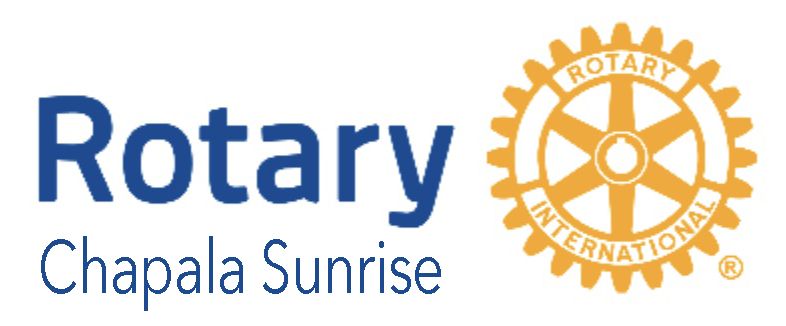July 21 CSRC Meeting – New Member Harry Bublin and NATO Europe Talk
At the July 21 CSRC weekly meeting in Chapala, the newest member was inducted into the club and a talk about NATO was presented by Ilona de Borhegyi.

Harry Bublin, our newest CSRC Rotary Club member, has a Master’s Degree in Educational Administration. Starting at age 24 (and for 30 years thereafter) he was a school administrator at various schools in New Jersey. He was able to greatly improve the standards and success rate of the schools at which he served, achieving a 90% passing rate on the SATs for the schools he supervised. Over the years he had five different job titles and retired at 55 and moved to Ajijic. He has become a Mason, a Shriner, a Mexican Citizen, a grandfather and now a Rotarian.
Talk: NATO – A European Perspective on the North Atlantic Treaty Organization
The cold war ended in 1985 and a new era began in 1989, but Eastern Europe had a population that was barely on their feet. In 1995 NATO sent 60,000 troops into Bosnia. At that time the idea of “European” citizenship really began. It takes a lot of work and high standards to be accepted into NATO. NATO’s primary goal is to keep the peace and to prevent such things as the closing of the gas pipeline which Europe depends on (and which Russia once closed). Currently there are 28 members and 22 partners.
Millions of people from Africa and the Middle East are now trying to get into Europe – many are walking across the deserts of Africa in search of a better life. The Shenkin Agreement has 26 countries and they agreed to “no borders” so that people could travel freely among these countries. The receent migration has put stress on the education and healthcare sustems there.
Turkey wants to enter the EU zone, but its government does not recognize the genocide of the Armenians a century ago, which presents an obstacle. Turkey is primarily Muslim, and it’s still occupying Cyprus, creating further problems for acceptance into the EU.
NATO is training troops to fight ISIS and most of NATO believes that negotiating with Russia is better than any confrontation.
Regarding travel and staying in Europe – If you want to go for more than three months, must leave after three months, be out of the area for three months, then you can return for three months again, and so on.
Out of a $2 billion USD current budget for NATO, the US has given $460 million, or 22%. It’s very little compared to our total defence budget ($650 billion). It is believed that if Russia (Putin) is provoked, he will respond with force. NATO has no cyberforce, but Germany has set up such a group.
About the Speaker
Now a full-time resident of Ajijic, Ilona de Borhegyi was an Information Officer at the United Nations Food and Agriculture Organization (FAO)in Rome from 1985 to 2013. She lived in Europe for 31 years – since before the fall of the Berlin Wall.
Before that, she worked at Los Alamos National Laboratory in New Mexico from 1977 to 1985, where she was a documentary film producer following national and global nuclear security issues. Aa a Hungarian/European Union citizen, she’s followed the issues involved with the increase of NATO membership, particularly from the viewpoint of reinstated Eastern European countries which still fear Russia.
She holds degrees in Film Production and Anthropology and spent time as a young person in Guatemala and Mexico with her parents who were Maya archeologists. She remains in close contact with former colleagues and European friends on development and political concerns, and is an active member of several social groups here in Lakeside.
